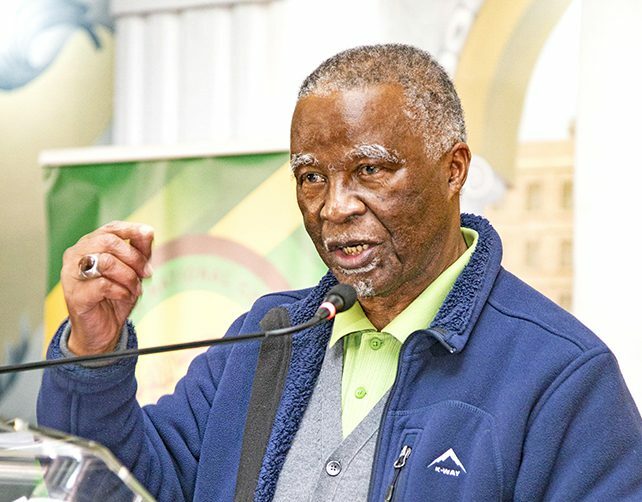Former South African President Thabo Mbeki called on a new generation of leaders to adopt a Pan-Africanist perspective during a dynamic biannual conversation hosted by the University of South Africa (Unisa) at the Thabo Mbeki African School of Public and International Affairs.
The event, held at the ZK Matthews Great Hall in Pretoria drew a diverse crowd of scholars, dignitaries, students, and alumni for an engaging afternoon of dialogue on Africa’s role in a turbulent global landscape.
The three-hour session, saw Mbeki in spirited discussion with panelists and audience members, tackling pressing socio-economic, gender, political, and geopolitical challenges.
Welcomed by Unisa’s Principal and Vice-Chancellor, Prof. Puleng LenkaBula, Mbeki was greeted with enthusiastic applause before diving into themes of African unity, historical liberation movements, and contemporary global tensions.
Mbeki traced the roots of Pan-Africanism to 19th-century African intellectuals, emphasizing its enduring relevance.
“I must thank the panelists, Professor Amsila, for these difficult questions they have posed, all of which… relate basically to our continent,” he said.
He highlighted that the liberation movement was inherently Pan-Africanist.
“The Liberation Movement historically has been Pan-Africanist in outlook; it could not but be Pan-African in outlook,” Mbeki said.
On Ukraine, US-SA relations
Addressing global geopolitics, Mbeki pointed to the Russia-Ukraine conflict, attributing its escalation to the 2014 ousting of Ukrainian President Viktor Yanukovych.
“These matters, exacerbated by the removal of the then democratically elected President of Ukraine by his parliament, Viktor Yanukovych, in 2014, who later sought refuge in Russia for political reprisals, saw the gradual increase in tensions between the two countries, which led to the two-year long war,” he explained.
Mbeki reaffirmed South Africa’s neutral stance: “South Africa has since taken a non-aligned position and continues to advocate for peace from both sides.”
Mbeki also addressed South Africa’s relationship with the United States, critiquing recent comments by South Africa’s ambassador to the US, Ebrahim Rasool, regarding US President Donald Trump.
He emphasised the need for South Africa to navigate geopolitical shifts independently, with US-SA relations a focal point of the discussion.
Focus at home
On domestic issues, Mbeki tackled gender inequality, calling for societal introspection. He described gender mainstreaming as a significant challenge in South Africa, highlighting systemic barriers for women.
“Women are uniquely affected when they take maternity leave, which can sometimes hinder their chances of promotion compared to their male counterparts,” he remarked.
The event came ahead of Mbeki’s keynote address at Unisa’s Inaugural Prof Stan Sangweni Annual Memorial Lecture on Saturday, where he will focus on ethical public service as a catalyst for a developmental state.



